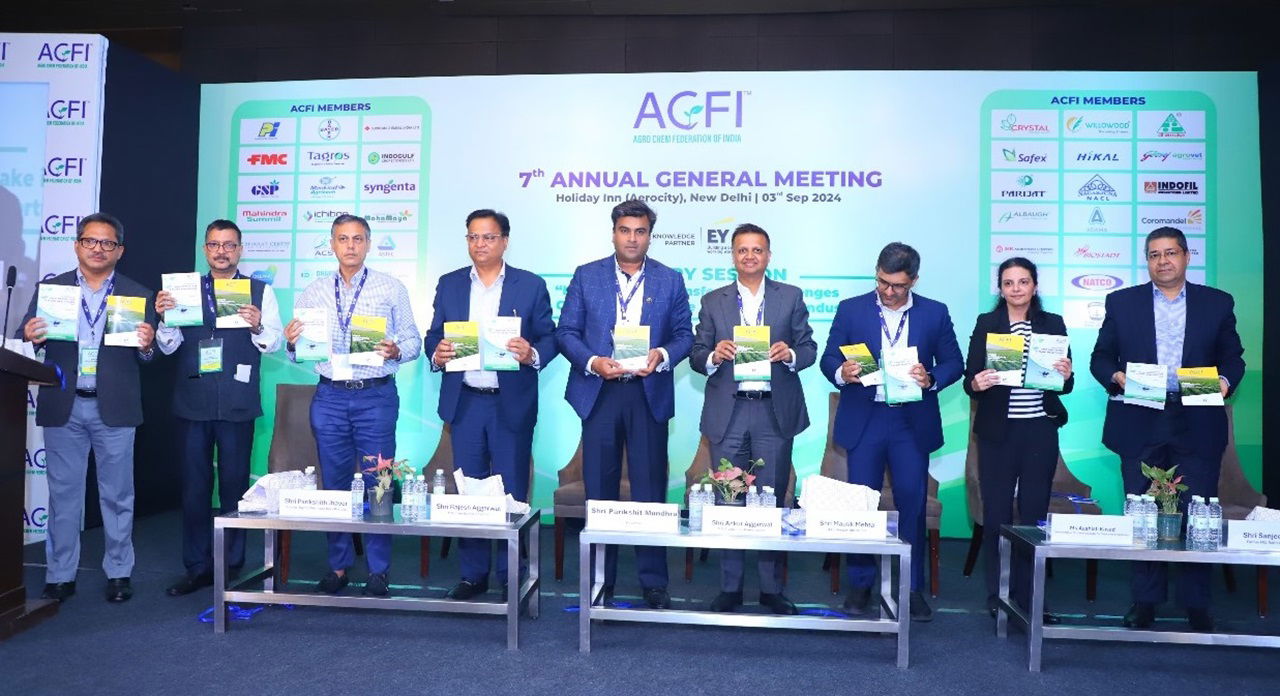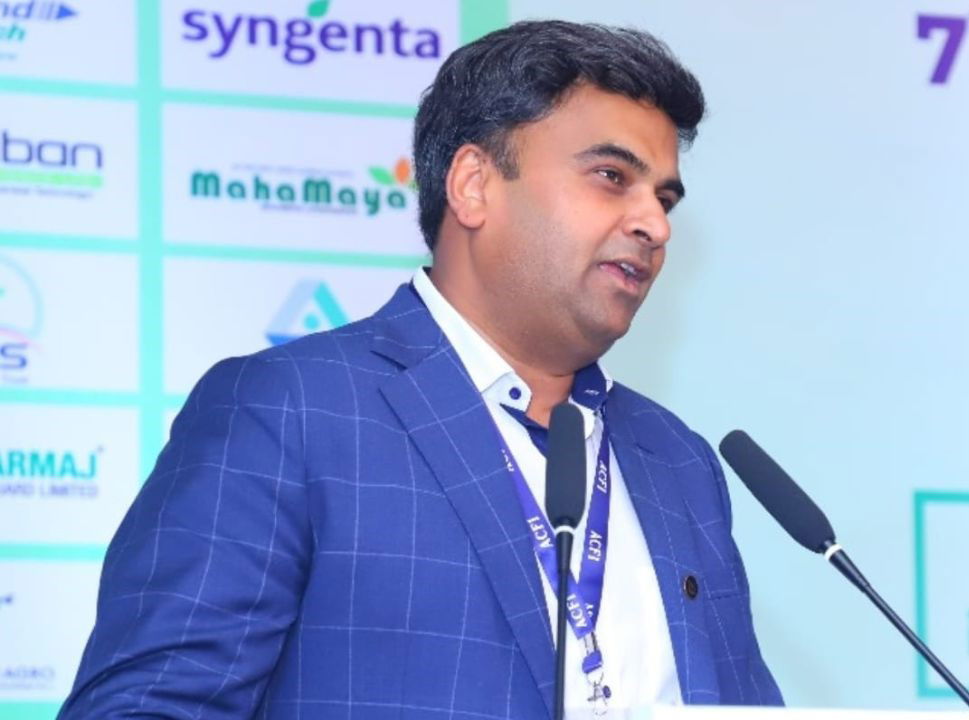
The agrochemical exports have recorded a significant growth in recent times and could exceed Rs 80,000 crore in the next four years, according to a knowledge paper by AFCI-EY titled Indian Agrochemical Industry: The Story, the challenges, the aspirations, released at the 7th AGM of Agro Chem Federation of India (ACFI) on September 3, 2024.
“The USP of India agrochemical industry is their quality and affordable prices which makes their products as the first choice of millions of farmers across 130 nations. If facilitated a conducive environment, the sector shows the potential of achieving exports of over Rs 80,000 crore in the next four years,” the knowledge paper said.
Industry veterans said that for exports to grow, the government must focus on facilitating a conducive environment which includes streamlining licencing norms and improving infrastructure for storage and sale, incentivise biopesticide production, streamline registration process for new molecules, enter trade agreements with countries with more relaxed MRL norms, introduce PLI-like scheme to attract investment from global players and reduce GST from 18% to 5%.
The Knowledge paper further highlighted that the introduction of PLI incentives for agrochemicals can boost investment of around Rs 10,000 to Rs 15,000 crore in the next 5 years.

Speaking at the panel discussion, Parikshit Mundhra, Chairman, ACFI said, “The reliance on generic molecules, low agrochemical usage, the complex registration process for new molecules and heavy dependence on imports are some of the challenges that must be transformed into opportunities through the “Make in India” initiatives.”
Given its role in enhancing agricultural productivity and export potential, the agrochemical industry will play a vital role in India’s quest of becoming a global manufacturing hub ultimately resulting in USD 5 trillion economy by 2025, Mundhra added. The agriculture sector has been growing at 3.8-4% CAGR and to meet this objective, the agriculture and allied sectors need to grow at a compound annual growth rate (CAGR) of 9.3%.
In the panel discussion titled “Make in India: Transforming challenges into opportunities in the Agrochemical Industry”, Parikshith Jhaver, Founder & Promoter, Tagros Chemicals, Rajesh Aggarwal, MD, Insecticides India Limited, Parikshit Mundhra, Chairman, ACFI, Ankur Agarwal, MD, Crystal Crop Protection Ltd., Aashish Kasad, Sr. Partner, EY and Maulik Mehta, CEO, Deepak Nitrite Ltd. reiterated that the "Make in India" initiative has the potential to transform India's agrochemical industry into a global manufacturing and export powerhouse. By addressing the challenges of reliance on generic molecules, low usage of agrochemicals, and a complex regulatory framework, India can capitalize on the opportunities presented by global market shifts and domestic demand growth.
The Federation said that these three growth levers - Improving trade and marketing of agrochemicals, increasing domestic production and R&D, and creating a favourable policy environment – will not just achieve the $5 trillion economy but also ensure sustainable agricultural growth, improved food security, and enhanced livelihoods for millions of farmers across the country.
Highlighting the growth levers, the speakers said that streamlining the process of obtaining licenses for storage and sale across states and improving infrastructure can boost domestic trade. They demanded that simplified export registration process and strategic trade agreements will help exports. Adoption of technology in to ensure efficient use of agrochemicals, awareness among farmers, PLI-like scheme for global players and foster R&D through PPP will boost domestic production.
On the policy front, the Federation demanded that registration process for new agrochemical molecule must be streamlined, small & regional players must be incentivised, enter trade agreements with countries with more relaxed MRL (maximum residue limit) norms and incentives for capacity building and export-oriented manufacturing, could make India an attractive destination for global agrochemical companies.
Setting the tone for the panel discussion, Director General of ACFI Dr Kalyan Goswami said: “India's agrochemical industry plays a pivotal role in its agricultural success, supporting increased crop yields and safeguarding food security. As the fourth-largest producer of agrochemicals globally, India faces a paradox: while it holds significant production capacity, it still imports significant worth of agrochemicals, primarily from China. The "Make in India" initiative provides a timely framework to transform these challenges into opportunities, enabling India to become a global manufacturing and export hub for agrochemicals.”
The ACFI also demanded that the government in the 54th GST council meeting scheduled for next week reduce the GST on agrochemicals from the existing 18% to 5%. This will help the domestic and global manufacturers to contribute in India’s agricultural production and productivity thereby also ensuring farmers’ well-being and security.










